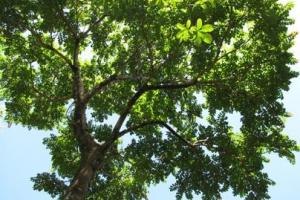Risk Tool
Cocobolo Dalbergia retusa
Also know as: Black rosewood, cocobola, cocobolo nambar, cocobolo negro, cocobolo prieto, cocoboloholz, foseholz, funera, granadillo, granadillo de chontales, manarizoby, namba, nambar, nambar de agui, nambar legitimo, Nicaraguan cocobolo, Nicaraguan rosewood, nambar, palisandro, palissandre cocobolo, palo negro, prieto, red foxwood, rosewood, yellow rosewood


D. retusa, commonly known as cocobolo, is a small to medium-sized tree native to Belize, Costa Rica, El Salvador, Guatemala, Honduras, Mexico, Nicaragua, and Panama. Cocobolo’s distinctive characteristic is its production of natural oils, which provides the wood with a natural waterproof polish. Because of this, as well as its durability, density and color, it is highly demanded for use in the manufacturing of cutlery handles, musical and scientific instruments, jewelry boxes, and specialty wood products. Historical exploitation of the species for its timber has drastically reduced its range, and current threats to the species include logging, loss of habitat to cattle ranching and burning. Its IUCN Red List status is “vulnerable.”
Species Details
D. retusa is listed on Appendix III of the Convention on International Trade of Endangered Species of Wild Fauna and Flora (CITES), a listing that applies to logs, sawn wood and veneer sheets from Guatemala, and all parts and derivatives from Panama, except seeds and pollen, and finished products packaged and ready for retail trade.